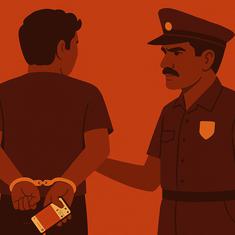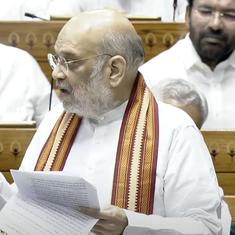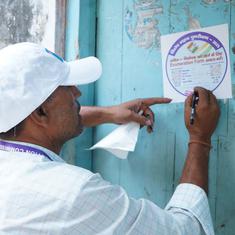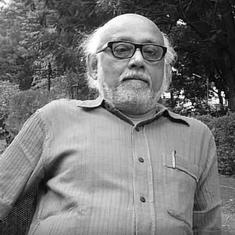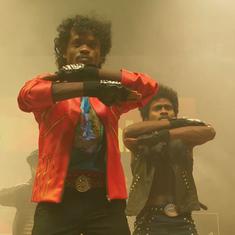Tajuddin Ahmed endured the worst-ever slur on his political career due to an outrageous and mischievous campaign orchestrated against him very subtly from behind the scenes by his inimical party colleagues. Following his government’s return from Mujibnagar, they spread a malicious rumour that Tajuddin’s decision to get one taka denomination currency notes printed by the government of India’s Security Printing Press at Nashik had opened the floodgates for India to wreck Bangladesh’s economy.
Before leaving Calcutta, Tajuddin had placed an order for printing 80 crore notes of one taka denomination with the Nashik Security Press as he wanted to gradually replace the Pakistani currency notes of all denominations then in circulation in Bangladesh with his own country’s currency notes.
There was, after all, an urgency in replacing the Pakistani notes as that country’s Central Bank was contemplating on demonetising Re 1 notes and also those of higher denominations. So, Tajuddin decided that before Pakistan went ahead with its demonetisation plan, his government would gradually release its own currency notes in the market so as to avoid a sudden financial crisis overtaking his newly liberated country. And he wanted to begin this exercise by releasing one taka notes.
As a result, he decided that his government, in the next two months, would withdraw the lowest denomination Pakistani notes and replace them with new one taka foreign-printed ones. That the one taka notes had been printed in India was not known to many in the government-in-exile. So, in early March when the one taka notes were put into circulation, the government’s move was widely acclaimed with an open mind by people at large and the country’s business community in particular as a welcome step in the right direction.
Some Dacca dailies even editorially complimented Tajuddin’s provisional government for its administrative capability, profoundness and extraordinary far-sightedness in replacing Pakistani notes with Bangladesh’s own so soon after liberation. The country’s business chambers too welcomed the government’s initiative in releasing the sleekly designed, printed and user-friendly notes in circulation. What was more welcoming was that the notes had Bengali texts printed in pleasing Bangla fonts, unlike the Pakistani ones, which made them look uniquely distinctive.
But suddenly, thereafter, news reports began to emerge in Dacca dailies quoting no source but citing rumours circulating in the country’s western bordering districts that huge consignments of duplicate one taka notes were being smuggled into Bangladesh in sacks to destabilise its economy. The reports did not mention Tajuddin by name but there were enough hints to suggest that he had deliberately got the one taka notes printed at the Indian Security Printing Press Nashik, so that India at a later date, could push in duplicate notes to ruin Bangladesh’s economy. The other purpose was that India wanted to have a total stranglehold on the country’s politics and economy and Tajuddin had willingly agreed to be part of this Indian conspiracy. Those reports, without directly naming anyone, made no bones about the fact that Tajuddin and Mrs Gandhi were the main targets of this insidious whispering campaign.
The reports suggested that India, with the connivance of the provisional government’s decision makers (obviously hinting at Tajuddin and Khondokar Asaduzzaman, finance secretary to the provisional government, whose Bangla signature was printed on the notes) had got the currency notes printed at its own security press so that duplicate notes could be printed and smuggled across to fulfil its nefarious designs in Bangladesh. The reports suggested that India’s real purpose was to flood Bangladesh’s markets with duplicate notes so that it could siphon off the original ones, thereby leaving the country with a currency which was bogus and had no value, the obvious result of which would result in an overnight collapse of the country’s financial system.
What lent credence to those published reports was deliberate news leaks resorted to by Tajuddin’s enemies in the cabinet and in the party who secretly briefed their confidants among the local press that even Bangabandhu was ‘extremely worried’ by identical reports conveyed to him by some of his ministers and district party secretaries about crores of one taka duplicate notes being smuggled daily into Bangladesh from India. Bangabandhu was so distressed by those reports that he had summoned senior officials of the Finance Ministry to his office in order to verify their veracity. This had upset Tajuddin tremendously as instead of calling him, Bangabandhu had summoned his ministry’s officials without informing him. Interestingly, the officials’ dismissal of those reports as being ‘totally baseless and fabricated stories’ as told to Mujib was never conveyed to the press and, thus, not reported by the dailies.
To lend credibility to those unproven reports, two Dacca Bengali dailies published a picture of two notes which bore the same number. Later it transpired that those who had been feeding the press with such unfounded details had taken pictures of a one taka note twice and juxtaposed them in such a way that readers were led to believe that they were two different notes bearing identical numbers!
Ehtesham Haider Chowdhury, editor of Purbodesh, a Bengali Dacca daily which had published the picture, was asked by Bazlur Rahman (then a senior assistant editor of Sangbad), whether those who had provided him the photograph of fake Indian currency notes had deposited the same with Bangladesh Bank and reported the matter to the police as required by law. Astonishingly, Bazlur bhai (who was also my professional mentor during my posting in Dacca) was informed by Chowdhury that he had no interest in finding out whether the fake notes had been deposited with Bangladesh Bank or if the matter had been reported to the police.
“Having carried such highly sensitive and damaging stories and a picture which has caused so much confusion and uncertainty in the country, was it not incumbent upon you to find out what the people, who supplied you with the photograph of the so-called duplicate notes, did with them?” Bazlur bhai had queried Chowdhury.
He had then gone on to remind him pointedly,
Did it ever occur to you that they were feeding your paper with false stories and pictures with evil intent? We at Sangbad were well aware of the Awami League members who were resorting to these dirty tricks against whom and with what intent. So we ignored the story as none of our correspondents from the bordering districts had reported about large-scale smuggling of fake Bangladesh currency notes from India. Nor had the police of those districts and the Bangladesh Rifles (BDR) deployed on the border, had reported any seizure of fake notes. The whole campaign was politically motivated to nail Tajuddin.
But the press reports had created such panic and furore in the nation, that even Dacca’s rickshawallahs were scared and refused to accept fares in those newly printed Bangladeshi taka notes and insisted on being paid in Pakistani notes and coins instead. Similarly, shopkeepers declined from accepting India printed currency notes as “they were not legal tender in this country.” When I would personally counter their charges by saying that “your government was yet to declare them so,” they would respond by saying, “our people have no faith and confidence in that currency and that is why no one is accepting them.”

Excerpted with permission from Mujib’s Blunders: The Power and the Plot Behind His Killing, Manash Ghosh, Paper Missile.


